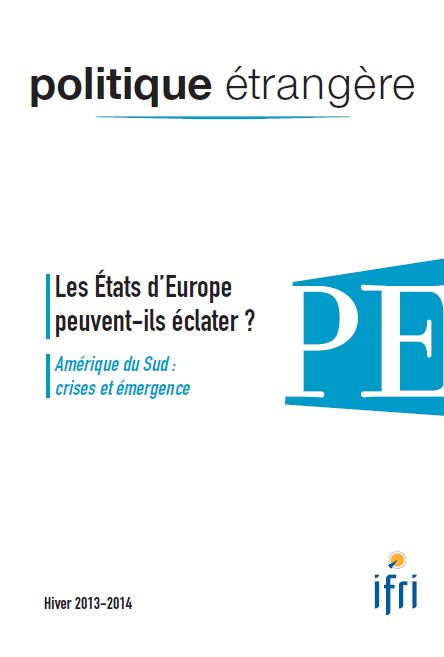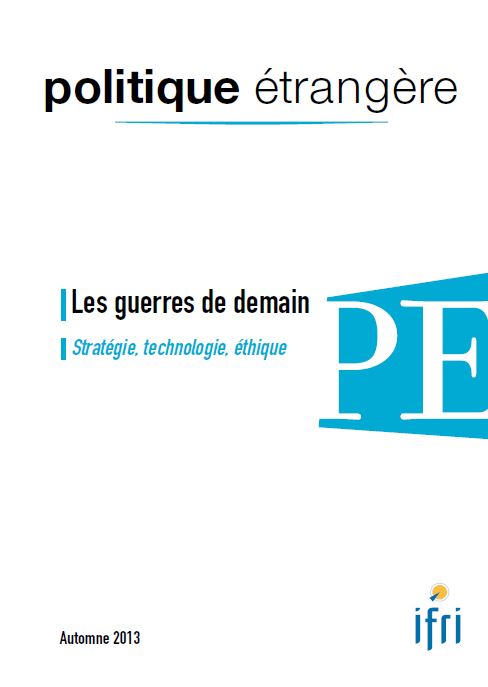Politique étrangère

Will Europe’s Past be East Asia’s Future?
There are some disturbing similarities between present-day Asia and pre-1914 Europe.

The First World War and the Balkanization of the Middle-East
The First World War had tragic consequences for the Middle-East. It led to the partitioning of the Ottoman Empire and the balkanization of the region.

Turkey: the Sèvres Syndrome, or the Interminable War
For the Turks, the Treaty of Sèvres symbolizes the liquidation of the Empire and the carving up of Turkey by outside forces.

Can The European States Split? – South America: Crises and Rise


Asia: A Geopolitical Reconfiguration
The Asian “supercomplex” has taken shape: this is evident within the cross-membership model to Asian intergovernmental organizations and through the appearance of political counterweights to China, particularly in India.

Cyberwar Will Not Happen, but We Must Be Prepared
Even if no independent cyberwar has ever taken place, “cyberspace” has nonetheless become an important dimension of current conflicts.
Support independent French research
Ifri, a foundation recognized as being of public utility, relies largely on private donors – companies and individuals – to guarantee its sustainability and intellectual independence. Through their funding, donors help maintain the Institute's position among the world's leading think tanks. By benefiting from an internationally recognized network and expertise, donors refine their understanding of geopolitical risk and its consequences on global politics and the economy. In 2024, Ifri will support more than 70 French and foreign companies and organizations.





